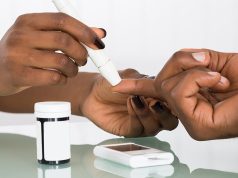Intervention effect on child communication significantly greater for children exposed to signs
By Elana Gotkine HealthDay Reporter
TUESDAY, May 27, 2025 (HealthDay News) — A parent-mediated intervention (PMI) is beneficial for child communication outcomes in children who are deaf or hard of hearing (DHH), according to a study published online May 27 in Pediatrics.
Maranda K. Jones, Ph.D., from the School of Communication at Northwestern University in Evanston, Illinois, and colleagues conducted a single-site parallel stratified clinical trial enrolling 96 parent-child dyads. Children were aged 12 to 18 months old, had been diagnosed with bilateral hearing loss without additional diagnoses, had at least one parent with typical hearing, and were exposed to some degree of spoken language by their parents. The mode of communication was measured as exposure or no exposure to sign. Dyads were randomly allocated to the PMI, which occurred weekly via telehealth over six months, or a control group.
The researchers found that participants in the PMI group had greater parent strategy use (Cohen’s d = 1.57) and child communication (Cohen’s d = 0.59), indicating a statistically and clinically significant intervention effect. Compared with children not exposed to signs, the intervention effect on child communication was significantly greater for children exposed to signs (regression coefficient = 18.93).
“The current study is a first step toward the implementation of evidence-based early communication interventions designed to maximize language outcomes for DHH children,” the authors write.
Editorial (subscription or payment may be required)
Copyright © 2025 HealthDay. All rights reserved.








